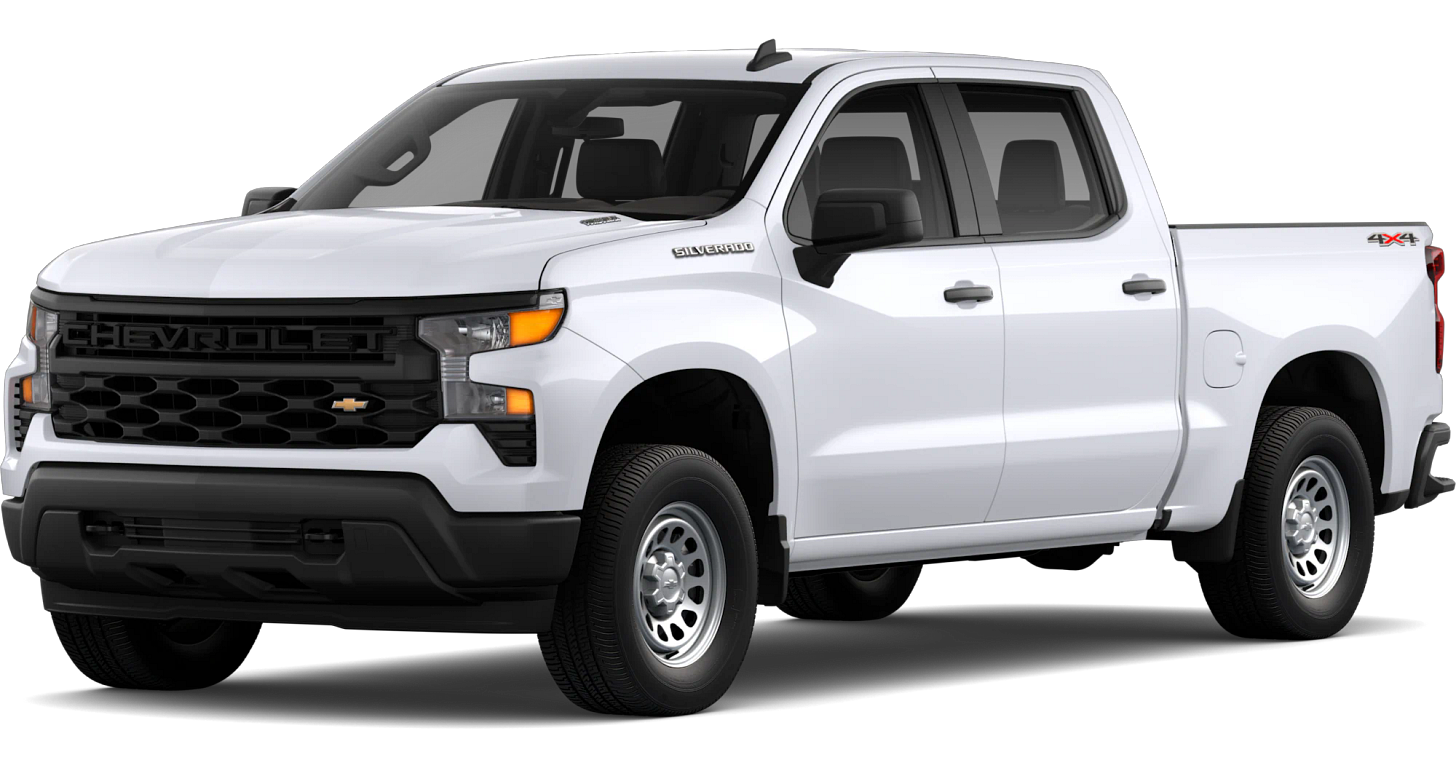Buy ASAP if you need a car, fridge, cell phone, washer
Experts also warn of higher prices on items including canned soda, corn, tuna
Anyone needing a big ticket item must buy it ASAP to avoid higher costs.
Whether a motor vehicle, a new refrigerator or even a washing machine, the new tariffs will directly impact consumer prices, supply chain analysts tell me.
“If you are planning this year to do a major purchase of large appliances or a car, I would pull the trigger sooner rather than later,” said Professor Jason Miller, professor of supply chain management at the Eli Broad College of Business at Michigan State University.
But that’s not all.
Even canned soups, canned soda, canned vegetables, canned fruit and canned tuna will be affected.
But let’s start with cars, trucks and SUVs.
“When you look at the tariff policies proposed, the steel and aluminum tariffs will add cost to vehicles,” Miller said.
For example, the best-selling Ford F-150 has a high-strength steel frame with a military-grade, aluminum alloy body.
President Trump has pushed tariffs on imports from Mexico and Canada from February to March.
In 2018, the last time he implemented tariffs on aluminum and steel, steel profits increased substantially when compared to the years prior, Miller said.
When looking back, prices on large appliances that had been dropping over a period of time actually increased, too. Not only did tariffs on washing machines spike their prices, but dryer machine costs jumped, too. Consumers felt the pinch on both domestic and foreign-made products, Miller said.
That's because even products Made in America include imported parts.
In addition, history shows that U.S. companies hike prices on American consumers if they can do so without losing sales to foreign competitors. Economic analysts pointed out that bringing manufacturing back from foreign shores in coming years won’t cut costs for companies or their consumers because domestic suppliers will have also have raised their prices as a byproduct of tariffs.
Cars. Cars. Cars.
Whether with new vehicles or car repairs, consumers will feel the pinch.
A key impact will be motor vehicle stamping — the process of pressing sheets of metal for parts such as car body panels and engine components. Steel makes up more than half the cost of these parts, Miller said.
For example, just American Industrial Co. in Gurnee, Illinois makes:
Floor mat securement brackets
Horn buttons
Rearview mirror mounting plates
Steering wheel components and brakes
Fuel Injectors
Fuel Pressure Regulators
Seat Latches
Costs will be felt in steel fabrication for construction, farm machines and material handling equipment such as conveyors and forklifts used in warehouses. Even nuts and bolts, which mostly come from China.

From a supply chain standpoint, the U.S. economy is weaker today than it was in 2018 and tariffs weren’t broadly applied to our trading partners Canada and Mexico, Miller said.
“Things now would be different,” he said. “For one, the prior rounds of tariffs had massive exemptions built into them. The most famous example, I think, was that Tim Cook (CEO of Apple) in 2018 lobbied not to have tariffs on cell phones from China. China accounts for over 40% of our cell phones. They did not tariff cell phones form China then. Now those tariffs are in effect.”
Magnesium-aluminum alloy and titanium-aluminum alloy are commonly used as the body of mobile phones, according to Stanford Advanced Materials. “Aluminum is the most versatile and cost-effective smartphone body material.”
The U.S. imports a lot of goods that go into the production process of major industries — textiles, electronic components, fabricated metal, basic chemicals.
“We’ve tariffed it all,” Miller said.
He, like Ford CEO Jim Farley, said that U.S. tariffs are also making U.S. companies less competitive globally because every company needs to import some products from China and costs to only U.S. companies are going up now.
President Trump is focused on 25% tariffs on products coming from Mexico and Canada and 10% tariffs on products coming from China. Energy resources from Canada will have a lower 10% tariff.
This crackdown is designed to pressure other countries to crack down on drugs and gangs, the White House said in its news release on Feb. 1.
The Detroit Three will be hit hard.
Their vehicles built in Mexico include the Ford Ranger, Ford Mustang Mach-E, Chevy Silverado, Chevy Equinox, Chevy, Blazer, GMC Sierra, Jeep Compass, Jeep Wagoneer and Ram 1500.
He slapped a 25% tariff specifically on steel and aluminum on Feb. 10. Canada is the No. 1 supplier of foreign steel and aluminum to the U.S.
Leaders from around the world have warned the U.S. that they will answer tariffs with countermeasures that may apply to U.S. exports.
“Tariffs are taxes — bad for business, worse for consumers,” said European Union chief Ursula von der Leyen, the Associated Press reported.
Prepare for ‘demand destruction’ too
In addition to planning for prices going up for consumers, an additional byproduct of tariffs will be “demand destruction.” That means, for example, a carmaker in Michigan that may need to replace its tooling for $15 million may postpone the project because a portion of the business is across the border, and costs are uncertain, Miller said.
Companies often postpone big investments because they expect customers to buy fewer high-cost items, he said. “If I'm an automaker, take Ford or GM, and you’re making an economically-priced vehicle in Mexico, there’s less margin to be made. Now those vehicles are slapped with 25% tariffs, so sales are going to decline. People will be pushed off replacing their current car.”

Dealers will feel the pain directly with a drop in new car sales, he said.
Auto suppliers are already reeling from rapidly-changing demands by day.
“The Canada-Mexico tariffs are especially troubling because of how involved our trade is with those two countries. We have an intertwining of production networks,” Miller said. “Canada is our biggest export market. I promise you they'll buy less. So there’s less demand. That, to me, is bigger concern at this moment.”
How ‘America First’ impacts supply chain
With or without tariffs, consumers must prepare for U.S. prices to go up in coming months, said Sam Fiorani, vice president of global forecasting for AutoForecast Solutions in Chester Springs, Penn.
While the president has said he is working to pressure other nations to improve border security, he has also focused on America First policies to bring manufacturing back to the U.S.
“If you break up the North American supply chain, it raises the price of everything,” he said. “The Trump Administration's tariffs are being put in place to pull production of things into the U.S. By doing that, you break up the efficiencies built into the North American supply chain. The global supply chain keeps prices low.”
Cars are just the best example of an industry in the direct line of fire when it comes to manufacturing costs and consumer impact, he said.
Even when cars are built in the U.S., components in the cars are imported from other places, Fiorani said. “Electronics from Asia, transmissions from Europe. Any car built in the U.S. has no more than 80% U.S. content. That means that 20% comes from a country outside the U.S. that have specialized to make parts better, more efficiently and less expensive.”
Changing the global supply chain and manufacturing takes time and major investment, he said. “In the short term, you have to buy imported parts.”
That means consumers must make purchases now to save money.
“If you need to replace a car, do it now,” Fiorani said. “Prices are only going to go up this year.
While tariffs on China, and steel and aluminum, have already gone into effect, consumers need to look at making major purchases prior to March.
More: ‘Out of the Blue,’ Donald Trump calls Bill Ford
More: In autos, it’s U.S. and Ontario vs. The World
More: Automakers give $1M gifts to Trump inauguration
PS: As a proud member of the Iowa Writers’ Collaborative, a roundup of world-class journalists, I hope you’ll check out the link to news, commentary and features.






That’s the main reason we bought a new car now
Very informative story. Thank you.
I keep wondering how long will consumers (voters) keep believing that this “America first” pablum being fed to them by Trump/Musk will make their lives better and not worse?
Is there a psychological name for this type of delusion?